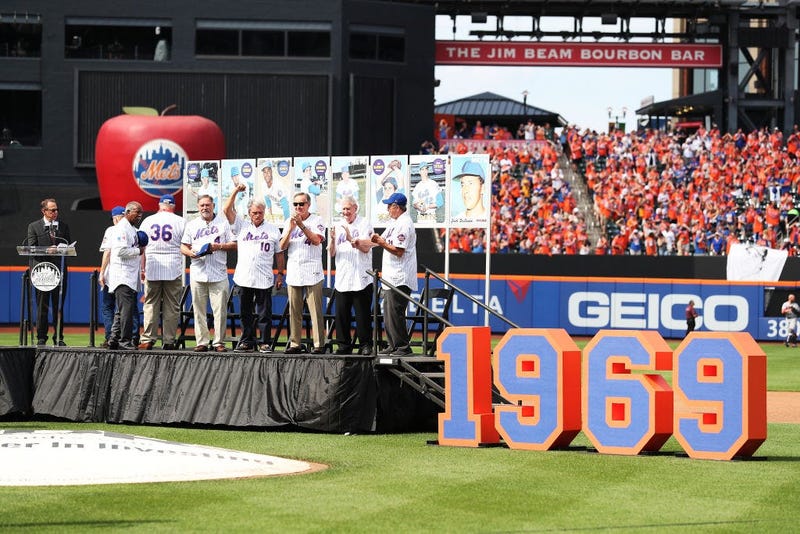
For their first seven years as a franchise, the New York Mets were the laughingstock of baseball. From 1962-1968, they never finished better than ninth in the National League… out of 10 teams.
But in 1969, the team that became known as the "Amazin' Mets" completed one of the biggest 180s in sports history. Not only did they put together their first-ever winning season, but they won an NL-best 100 games, swept the Atlanta Braves in the NLCS, and then beat the favored Baltimore Orioles four games to one to cap off the miracle season with their first World Series title.
Things didn't start out so amazing for the Mets in 1969, though. On May 27, their record was 18-23 and there didn't seem to be much reason to think the season was going to be much different from previous years. But then the Mets reeled off a franchise-record 11-game win streak to get the ball rolling.
They continued to play well throughout the summer, yet they still found themselves 10 games behind the Chicago Cubs in the NL East in mid-August. But the Mets caught fire down the stretch, winning 24 of their final 32 games, and the Cubs collapsed, allowing New York to surge past Chicago and into the NLCS.
As it had been all season, the Mets' strength was their pitching. In a 25-game span in September, they recorded a ridiculous 10 shutouts, a feat unmatched in the last 100 years. They finished with 28 shutouts on the season, the second-most in the last 100 years behind only the 1968 St. Louis Cardinals. Tom Seaver led the way with a 25-7 record and 2.21 ERA en route to his first of three Cy Young Awards.
The Mets' offense, which ranked in the bottom half of the league in the regular season and saw just one player hit more than 14 home runs (Tommie Agee hit 26), came alive in the NLCS, scoring 27 runs in a three-game sweep of the Braves.
In the World Series, though, they would once again need their pitching to lead the charge as they went up against an Orioles team that had both a top offense (led by Frank Robinson and Boog Powell) and a top pitching staff (led by Mike Cuellar, Jim Palmer and Dave McNally).
After Cuellar outdueled Seaver in a Game 1 Orioles victory, the Mets' pitching dominated the next four games. Jerry Koosman allowed one run in 8 2/3 innings in a 2-1 Game 2 victory. Gary Gentry gave them 6 2/3 scoreless innings in Game 3 before a young Nolan Ryan came on to close out a 5-0 win. In Game 4, Seaver pitched all 10 innings in a 2-1 victory that ended with a walkoff throwing error. Then Koosman allowed three runs in a complete-game effort in the clinching Game 5 as the Mets came back from a 3-0 deficit to win 5-3 and finish off the O's.
Amazin' indeed.


